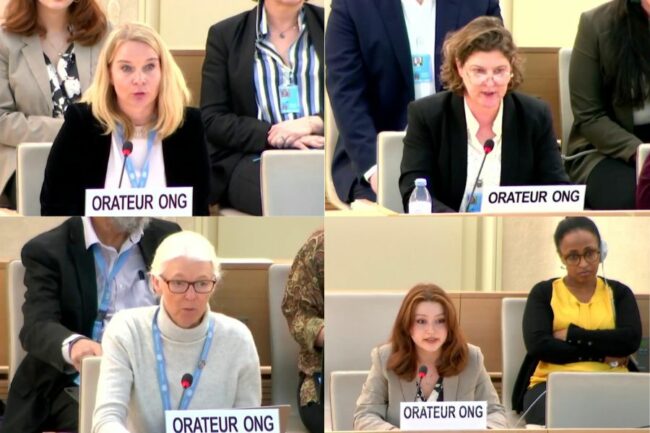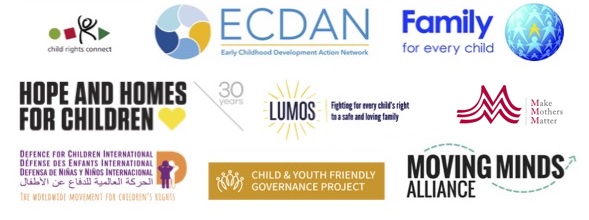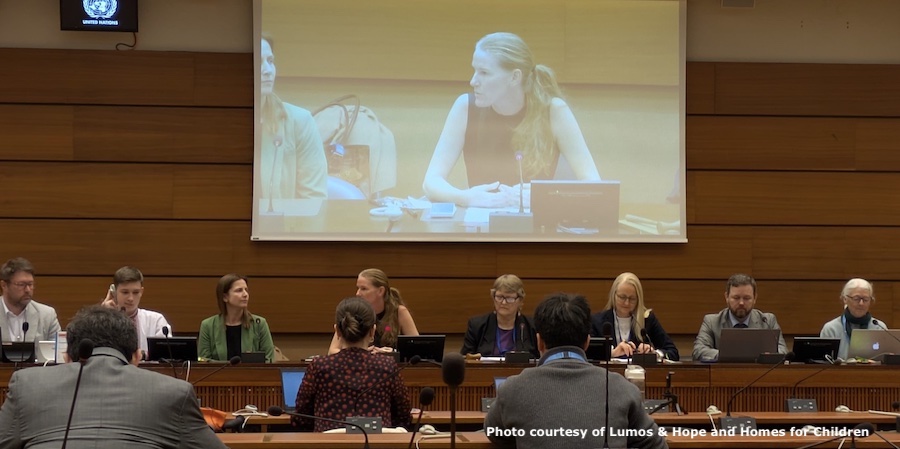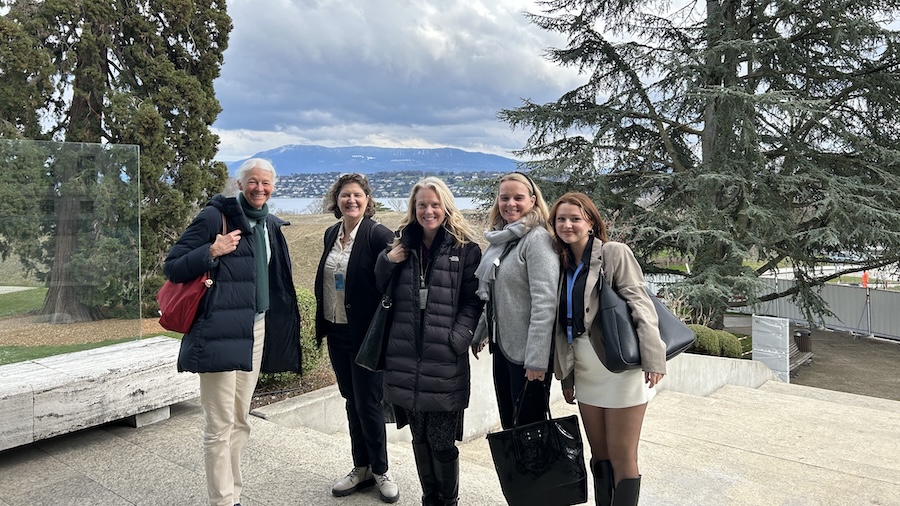Championing Mothers’ Rights at the UN Human Rights Council
18.03.25
UN Geneva - The 58th session of the UN Human Rights Council (HRC58) provided a crucial platform for advocacy, engagement, and collaboration on pressing human rights issues. MMM representatives made significant contributions, delivering five oral statements and contributing a side-event presentation. Here’s a look back and key takeaways from the session.

Voices for Change: Key Oral Statements
Throughout the session, we delivered five oral statements addressing critical issues affecting mothers, caregivers, and children worldwide.
- Recognising Mothers to advance Gender Equality (General Debate on Item 3): We commented on the OHCHR report on Care and support, highlighting the exclusion of mothers—the primary caregivers worldwide. We urged the use of the word ‘mother’ as a necessary step to recognise the specific discrimination and challenges that mothers face in relation to their unpaid care work and responsibilities, and stressed the impact of ignoring mothers on gender inequality, women’s economic hardship, and maternal mental health.
Read our statement
By failing to name mothers, we fail to address the unique discrimination, human rights violations and challenges they face. We also fail to leverage their power as change-maker.
- Migrant Single Mothers and the Housing Crisis (Item 3 – Adequate Housing): We emphasised the growing crisis of homelessness among single mothers, particularly migrant women, who face economic vulnerability and discrimination. We urged policymakers to address their unique challenges and protect their right to adequate housing.
Read our statement - Mothers, Social Protection, and the Informal Economy (Panel on the Rights to Work & Social Security): We advocated for universal social protection measures that support mothers, as their unpaid caregiving work and responsibilities often limit their access to formal work. We highlighted the lack of maternity protection for the majority of new mothers and the urgent need for policy reforms.
Read our statement – endorsed by our partner the Global Coalition on Social Protection Floors
Investing in social protection for mothers is a high-return investment. Mothers are the backbone of society—frontline health workers, primary nurturers, and the first educators of their children.
- A Gender-Responsive Approach to Debt and Climate Crisis (Item 3 – Foreign Debt & Human Rights): We stressed the disproportionate effect of the debt and climate crises on women, especially mothers, who bear the weight of unpaid care work. We called for systemic economic transformation that values and supports unpaid caregiving work, and redistributes responsibilities and costs.
Read our statement - Early Childhood Development (ECD) as a Human Rights Priority (Annual Day on the Rights of the Child): With the endorsement of our partner Early Childhood Peace Consortium (ECPC), we championed the need for policies that recognise parents, particularly mothers, as frontline workers in ECD–including during pregnancy. We advocated for better support systems, including parental education and maternal mental health services, and a more equitable distribution of caregiving work and responsibilities.
Read our statement
Spotlight on a Side-Event co-organised by Child Rights Connect members

Our presentation at the side-event, Making Early Childhood Development Real: Stories from Grassroots to Government Action, also focused on the vital role of parents—biological or otherwise—in a child’s early years. We underscored the need for policies that ensure a nurturing family environment, promote gender equality in caregiving, and support maternal mental health. The event reinforced that supporting parents for ECD, in particular mothers, is the smartest investment governments can make in our collective future.

Supporting a new legally binding instrument for the rights of older persons
Recognising the inadequacy of existing human rights instruments, we supported a resolution initiated by Argentina that will establish an inter-governmental working group to draft a new convention on the human rights of older persons. This new instrument is important for mothers as they face significant pension gaps and higher risks of living in poverty in old age.
Looking Ahead
MMM’s engagement at this 58th session of the HRC reaffirmed our role as a steadfast advocate for mothers, caregivers, and children. As we move forward, we will continue to push for policy changes that recognise, support and redistribute caregiving as a fundamental human rights issue.
We extend our gratitude to all who contributed to our efforts. Together, we continue to shape a more just and equitable world.

MMM UN Geneva Team at the Palais des Nations: from the left: Valerie Bichelmeier, Mélanie Nédélec, Natalie van Venrooij, Karen Thorsen, Gizem Demir Nirennold
The New EU Gender Equality Roadmap : A Call for Inclusion of Mothers
04.03.25
The European Commission’s initiative on a new Gender Equality Roadmap post-2025, marks a significant step forward in addressing gender disparities across the European Union. Make Mothers Matter (MMM
Breaking the Cycle: Gender Equality as a Path to Better Mental Health
18.03.25
The Council of the European Union has taken a decisive step in recognising the vital connection between gender equality and mental health.
Europe Must Listen to Mothers: Our landmark report heads to the European Parliament
28.08.25
On 22 September 2025, the voices of mothers will take centre stage in Brussels. For the first time, Make Mothers Matter (MMM) will present its State of Motherhood in Europe








